Black Feminist Theory examines intersections of race, gender, and class, offering a critical framework to understand societal structures impacting Black women’s bodies and health, challenging dominant narratives and advocating for justice․
1․1․ Definition and Scope of Black Feminist Thought
Black Feminist Thought (BFT) is a critical framework that centers the experiences and perspectives of Black women, emphasizing intersectionality and the interplay of race, gender, and class․ Developed by scholars like Patricia Hill Collins, BFT challenges dominant narratives by privileging the voices and knowledge of marginalized groups․ It critiques systemic oppression and highlights the resilience and agency of Black women․ The scope of BFT extends beyond academia, offering tools for social change and empowerment․ By focusing on lived experiences, BFT provides a holistic understanding of how power structures shape Black women’s lives, particularly in relation to their bodies and health․
1․2․ Historical Context of Black Feminism and the Body
The historical context of Black Feminism and the body is deeply rooted in the legacies of enslavement, colonization, and systemic oppression․ Black women’s bodies have historically been exploited, commodified, and subjected to violence, shaping the foundation of Black Feminist Theory․ The dehumanization of Black bodies during slavery and the fetishization of Black women’s bodies in colonial societies laid the groundwork for resistance and activism․ Figures like Sojourner Truth and Ida B․ Wells challenged these injustices, advocating for bodily autonomy and dignity․ This historical trajectory highlights how Black Feminism emerged as a response to intersecting oppressions, emphasizing the liberation and empowerment of Black bodies․
1․3․ Key Theorists and Their Contributions to the Field
Patricia Hill Collins, a pioneering scholar, laid the groundwork for Black Feminist Thought, emphasizing the intersectionality of race, gender, and class․ Her work challenges dominant narratives, advocating for justice and equity․ Collins’ framework highlights the lived experiences of Black women, offering a critical lens to understand societal structures․ Other notable theorists, such as bell hooks and Audre Lorde, have further enriched the field, addressing themes of identity, power, and resistance․ Their contributions provide a foundational understanding of how Black women’s bodies are politicized and marginalized, while also inspiring resistance and empowerment․ These theorists’ insights remain central to contemporary Black feminist scholarship․

The Intersection of Race, Gender, and Health
Black Feminist Theory highlights how race, gender, and class intersect, shaping systemic inequalities in healthcare access and health outcomes for Black women, emphasizing the need for equitable solutions․
2․1․ Systemic Racism and Its Impact on Black Women’s Health
Systemic racism perpetuates stark health disparities for Black women, rooted in historical and contemporary inequities․ Limited access to quality healthcare, discriminatory practices, and socioeconomic barriers exacerbate poor health outcomes․ Black women face higher rates of chronic illnesses, such as hypertension and diabetes, often linked to stress from racial discrimination․ Additionally, inadequate treatment and biases in medical care contribute to mortality rates, particularly in maternal health․ These injustices are compounded by environmental hazards and food deserts in predominantly Black communities․ Black Feminist Thought highlights how systemic racism intersects with gender to create unique health challenges, emphasizing the need for equitable solutions․
2․2․ The Role of Intersectionality in Understanding Health Disparities
Intersectionality, a concept coined by Kimberlé Crenshaw, is crucial for understanding how race, gender, and class intersect to create unique health disparities for Black women․ This framework reveals how systemic racism, sexism, and economic inequality converge, leading to inadequate healthcare access, poor health outcomes, and higher mortality rates․ Black women often face compounded discrimination, influencing their experiences with conditions like hypertension, diabetes, and maternal mortality․ Intersectionality highlights the need for tailored interventions that address these overlapping oppressions, ensuring equitable healthcare solutions․ By centering Black women’s voices, this approach fosters a more inclusive understanding of health disparities and advocates for transformative change․
2․3․ Historical Medical Exploitation of Black Bodies
Black bodies have historically been subjected to medical exploitation, rooted in racism and the dehumanization of Black individuals․ Enslaved Africans were often used as test subjects for medical experiments, setting a precedent for systemic abuse․ The infamous case of J․ Marion Sims, who experimented on enslaved Black women without anesthesia, underscores this brutal history․ Such practices have led to deep-seated mistrust of the medical system within Black communities․ Black feminist theory highlights how these exploitations are not isolated events but part of a broader system of oppression that continues to impact healthcare access and outcomes for Black women today․

The Politics of the Black Female Body
Black women’s bodies have historically been objectified, exploited, and policed, reflecting systemic power dynamics․ Resistance and empowerment emerge through reclaiming narratives and challenging oppressive structures rooted in race and gender․
3․1․ Objectification and Sexualization of Black Women’s Bodies
The objectification and sexualization of Black women’s bodies are deeply rooted in historical and systemic racism, perpetuating harmful stereotypes such as the “Jezebel” trope․ These narratives have been used to justify exploitation, reducing Black women to their physical forms rather than acknowledging their full humanity․ The hypersexualization of Black bodies is evident in media, advertising, and art, often reinforcing Eurocentric beauty standards while marginalizing Black features․ This dehumanization has led to violence, discrimination, and the denial of autonomy over their own bodies․ Black feminist theory critiques these oppressive structures, advocating for the reclaiming of Black women’s bodies as sites of power, resilience, and self-determination․
3․2․ The Legacy of Stereotypes: From “Jezebel” to “Mammy”
The legacy of stereotypes such as “Jezebel” and “Mammy” has deeply impacted Black women’s bodies, perpetuating objectification and marginalization․ These caricatures, rooted in slavery and racism, portray Black women as hypersexual or subservient, erasing their humanity․ The “Jezebel” stereotype sexualizes Black women, while “Mammy” reduces them to nurturing figures devoid of autonomy․ These images have been used to justify exploitation, reinforcing systemic oppression․ They contribute to the objectification of Black women’s bodies, limiting their agency and perpetuating racial and gendered violence․ Such stereotypes have lasting effects on mental and physical health, self-perception, and societal treatment․ Black feminist theory challenges these narratives, advocating for reclaiming and redefining Black women’s bodies beyond these harmful tropes․
3․3․ Resisting Erasure: Black Women Reclaiming Their Bodies
Black women have long resisted the erasure of their bodies and identities through activism, art, and community-building․ By challenging stereotypes and reclaiming narratives, they assert autonomy over their physical forms․ This resistance fosters empowerment, rejecting historical marginalization and embracing self-defined beauty and strength․ Through collective efforts, Black women reclaim spaces where their bodies are celebrated, not objectified, fostering a culture of self-love and resilience․ These acts of defiance are central to Black feminist theory, emphasizing the importance of bodily autonomy and self-expression in combating systemic oppression․

Black Feminist Perspectives on Reproductive Health
Black Feminist Perspectives on Reproductive Health emphasize autonomy, challenging systemic barriers and advocating for equitable care through frameworks like reproductive justice, centering Black women’s voices and agency․
4․1․ Reproductive Justice: A Framework for Black Women’s Autonomy
Reproductive Justice is a framework rooted in Black Feminist Thought, emphasizing Black women’s autonomy over their bodies and reproductive choices․ It addresses systemic barriers, such as racial and economic disparities, that limit access to equitable healthcare․ This framework, created by Black women activists, expands beyond traditional reproductive rights to include the right to have or not have children, safe healthcare access, and the societal conditions necessary to raise children with dignity․ By challenging intersecting oppressions, Reproductive Justice advocates for policy changes and community empowerment, ensuring Black women’s bodily sovereignty and health equity․
4․2․ Access to Healthcare: Barriers and Solutions
Access to healthcare for Black women is often hindered by systemic barriers, including economic disparities, geographic limitations, and racial bias in medical systems․ These factors contribute to delayed or inadequate care, exacerbating health disparities․ Black feminist theory highlights the need for solutions that address these structural inequities․ Community-based clinics, policy reforms, and culturally competent care are essential steps toward equitable healthcare access․ Empowering Black women through education and advocacy ensures their voices are heard in healthcare decisions․ Grassroots organizations play a pivotal role in bridging gaps and fostering trust․ Ultimately, dismantling systemic barriers is crucial for achieving health equity and bodily autonomy․
4․3․ The Impact of Systemic Racism on Maternal Mortality
Systemic racism significantly contributes to high maternal mortality rates among Black women, exacerbating disparities in healthcare access and quality․ Black women are three to four times more likely to die from pregnancy-related complications than white women․ These disparities stem from intersecting factors, including inadequate prenatal care, biases in medical treatment, and the effects of chronic stress due to racial discrimination․ Black feminist scholars emphasize how systemic inequities perpetuate these outcomes, highlighting the need for comprehensive reforms to address racial and gender biases in healthcare systems․ Addressing these issues requires a commitment to equity and the dismantling of oppressive structures rooted in systemic racism․

The Black Female Body in Media and Art
The Black female body in media and art faces challenges of representation, progressing from stereotypes to empowerment through diverse portrayals and artistic reclamation․
5․1․ Representation in Media: Challenges and Progress
Black women’s bodies have historically been marginalized or hyper-sexualized in media, perpetuating harmful stereotypes․ Despite progress, challenges remain in achieving equitable representation․ Recent years have seen increased diversity, with more Black women in leading roles and behind the camera․ Digital platforms have amplified Black feminist voices, challenging traditional narratives․ However, systemic barriers persist, limiting opportunities for authentic storytelling․ The influence of movements like #MeToo and Black Lives Matter has highlighted the need for inclusive representation․ Black women are reclaiming their narratives, celebrating their bodies, and reshaping media landscapes, fostering a more nuanced understanding of their experiences and contributions to society․
5․2․ The Role of Art in Celebrating and Empowering Black Bodies
Art has long served as a powerful medium for celebrating and empowering Black bodies, challenging systemic oppression and stereotypes․ Through paintings, sculptures, photography, and digital art, Black artists reclaim their narratives, showcasing beauty, strength, and resilience․ Works often reflect Black Feminist Theory, emphasizing intersectionality and self-definition․ By centering Black bodies in creative spaces, art fosters pride and resistance, countering historical erasure and marginalization․ This cultural expression not only honors individual identities but also collectively heals and uplifts communities, transforming art into a tool for liberation and social change․
5․3․ The Influence of Black Female Icons on Body Positivity
Black female icons like Serena Williams, Lizzo, and Lupita Nyong’o have become powerful voices in the body positivity movement․ By embracing their natural beauty and challenging Eurocentric beauty standards, they inspire Black women to love their bodies․ These icons use their platforms to promote self-acceptance, combat colorism, and celebrate diverse body types․ Their influence extends beyond media, fostering a cultural shift that values Black women’s bodies in all their forms․ Through their activism and visibility, they empower individuals to reclaim their bodies, challenging societal norms and fostering a more inclusive definition of beauty and worth․
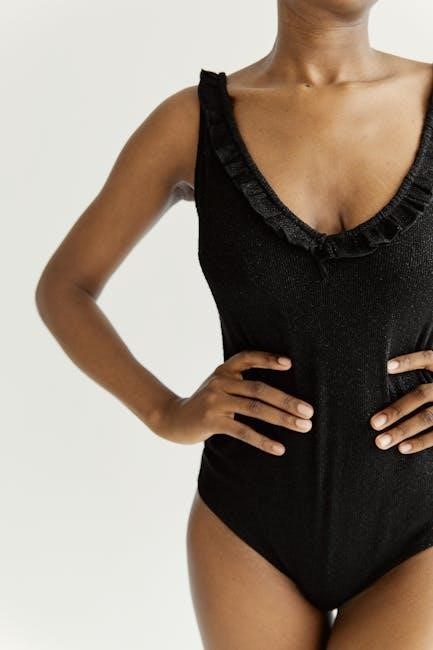
Mental Health and Emotional Well-being
The mental health crisis among Black women stems from systemic racism and oppression, highlighting the need for culturally relevant support and Black feminist principles to foster healing and resilience․
6․1․ The Mental Health Crisis Among Black Women
Black women face a profound mental health crisis, exacerbated by systemic racism, gender discrimination, and socioeconomic disparities․ The intersection of these factors leads to heightened stress, anxiety, and depression․ Historical and ongoing trauma, such as medical exploitation and societal marginalization, further compound these challenges․ Black women are often expected to endure hardship silently, perpetuating stigma around seeking help․ Limited access to culturally competent care and representation in mental health spaces worsen these disparities․ Addressing this crisis requires dismantling systemic barriers and fostering safe, inclusive environments for healing and self-care, rooted in Black feminist principles of empowerment and collective well-being․
6․2․ The Role of Therapy and Healing in Black Feminist Spaces
Therapy and healing in Black feminist spaces emphasize culturally relevant practices that address the unique mental health challenges faced by Black women․ These spaces prioritize holistic approaches, integrating traditional healing methods with modern therapeutic techniques․ Black feminist therapy often focuses on empowerment, resilience, and community support, recognizing the impact of systemic oppression on mental well-being․ By centering the voices and experiences of Black women, these spaces create safe environments for processing trauma, fostering self-care, and promoting collective healing․ They also challenge Eurocentric therapeutic models, offering more inclusive frameworks that honor Black cultural traditions and resilience․
6․3․ Community-Based Approaches to Mental Health
Community-based approaches to mental health emphasize collective care and empowerment, rooted in Black feminist values of solidarity and resilience․ These initiatives often involve local support groups, cultural practices, and grassroots organizations that address mental health through a lens of racial and gender justice․ By prioritizing shared experiences and mutual aid, such approaches challenge individualistic models of mental health care․ They also create safe spaces for Black women to heal from systemic oppression and trauma․ These community-driven efforts foster a sense of belonging and empowerment, enabling Black women to reclaim their mental and emotional well-being in ways that honor their cultural heritage․
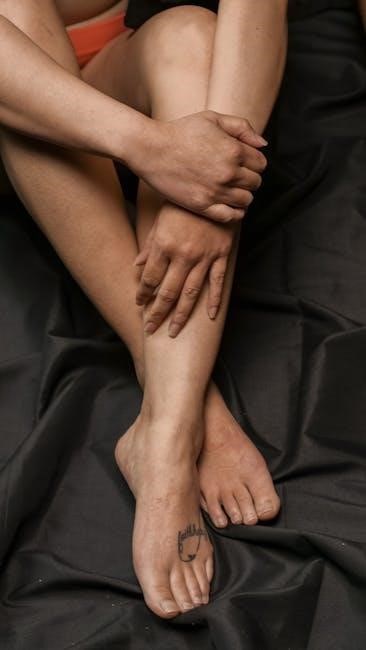
Black Feminist Approaches to Nutrition and Wellness
Black feminist approaches emphasize holistic wellness, empowering Black women to reclaim health through culturally rooted nutrition, addressing systemic inequalities, and fostering community-driven practices that prioritize bodily autonomy and healing․
7․1․ Food Justice and Access to Nutritious Food
Food justice is a critical component of Black Feminist Theory, addressing systemic barriers that limit access to nutritious food in Black communities․ These barriers, rooted in racial and economic disparities, disproportionately affect Black women, exacerbating health inequities․ Black feminist thought emphasizes the importance of equitable access to healthy food as a form of bodily autonomy and self-determination․ Community-led initiatives, such as urban gardens and food cooperatives, are central to this movement, fostering resilience and challenging food apartheid․ By prioritizing food sovereignty, Black women reclaim control over their diets and health, aligning with broader struggles for racial and gender justice․
7․2․ The Role of Traditional Diets in Black Culture
Traditional diets in Black culture hold profound cultural and historical significance, reflecting resilience and community․ Rooted in African heritage, these diets often feature staple ingredients like okra, yams, and leafy greens, symbolizing survival and adaptation․ They serve as a form of resistance against food insecurity and cultural erasure․ Meals like soul food and Caribbean dishes embody the richness of Black identity, fostering connection across generations․ Beyond sustenance, these diets represent a celebration of heritage and a commitment to preserving cultural traditions, while also promoting holistic well-being and community bonding․
7․3․ Wellness Practices Rooted in Black Feminist Values
Wellness practices rooted in Black Feminist values emphasize holistic approaches to health, combining self-care, community support, and cultural traditions․ These practices prioritize the interconnectedness of mind, body, and spirit, reflecting the resilience and wisdom of Black women․ They often include herbalism, meditation, and communal meals, drawing from African diasporic traditions․ Black Feminist wellness encourages autonomy and empowerment, challenging systemic barriers to healthcare access․ By centering Black women’s experiences, these practices foster healing and liberation, celebrating the body as a site of strength and resistance․ They also promote intergenerational knowledge-sharing, ensuring the preservation of culturally relevant wellness strategies․
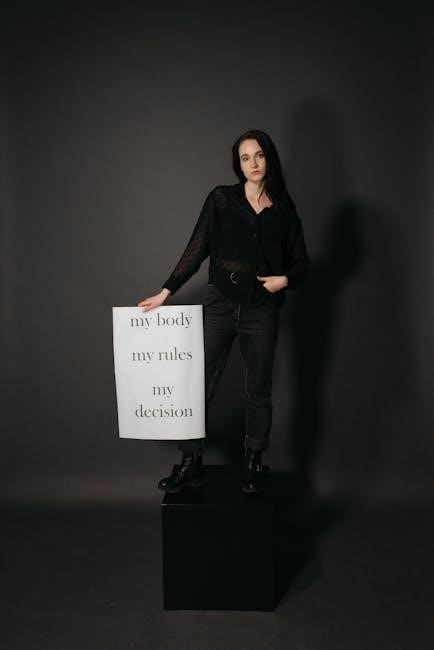
The Black Female Body in Sports and Physical Activity
Black women in sports challenge stereotypes, breaking barriers in athletics while navigating race and gender biases․ Trailblazers like Serena Williams redefine strength, inspiring future generations and fostering empowerment․
8․1․ Breaking Barriers: Black Women in Sports
Black women have historically faced systemic barriers in sports, yet they continue to excel, challenging stereotypes and redefining strength․ Athletes like Serena Williams and Wilma Rudolph have shattered glass ceilings, becoming icons of resilience․ Their achievements not only inspire but also highlight the intersectional struggles of race and gender․ Black feminist theory celebrates their triumphs, emphasizing how their bodies reclaim space in a world that often marginalizes them․ By breaking barriers, these women embody empowerment, proving that Black female bodies are capable of extraordinary feats․ Their legacy paves the way for future generations, fostering a culture of inclusion and pride in sports․
8․2․ The Representation of Black Female Athletes in Media
Black female athletes often face marginalization in media, with limited coverage and stereotypical portrayals․ Historical figures like Wilma Rudolph and contemporary stars like Serena Williams highlight the progress made, yet systemic biases persist․ Media frequently overlooks their achievements, reducing them to simplistic narratives․ This underrepresentation perpetuates racial and gender stereotypes, overshadowing their athletic prowess․ However, the rise of social media and diverse storytelling platforms has begun to challenge these norms, offering more nuanced portrayals․ The struggle for equitable representation remains ongoing, emphasizing the need for Black feminist critiques to amplify these athletes’ voices and celebrate their full humanity and excellence in sports․
8․3․ The Intersection of Race and Gender in Athletic Performance
The intersection of race and gender uniquely impacts Black female athletes, who face dual marginalization in sports․ Stereotypes often portray Black women as inherently athletic, yet they are frequently undervalued and underrepresented in media coverage․ Systemic barriers, such as limited access to resources and biased coaching, further hinder their opportunities․ Despite these challenges, Black female athletes like Serena Williams and Simone Biles have redefined excellence, challenging stereotypes and inspiring future generations․ Their resilience highlights the strength of Black women in overcoming racial and gendered obstacles, proving that their bodies are not only capable but extraordinary in athletic achievements․

Black Feminist Activism and the Body
Black feminist activism empowers Black women’s bodies through grassroots movements, challenging systemic oppression, and promoting health equity, fostering resistance, and advocating for bodily autonomy and justice․
9․1․ The Role of Black Feminist Movements in Body Liberation
Black Feminist Movements have played a pivotal role in liberating Black women’s bodies from systemic oppression and societal constraints․ By challenging stereotypes and reclaiming autonomy, these movements empower individuals to resist objectification and embrace their identities․ They emphasize self-love and collective resistance, fostering a culture of empowerment․ Through activism and advocacy, Black Feminist Movements address historical injustices, such as medical exploitation and marginalization, while promoting bodily autonomy and self-determination․ By centering Black women’s voices, these movements challenge dominant narratives, creating spaces for healing and liberation․ Their efforts continue to shift perceptions and advocate for inclusive, equitable representations of Black bodies in society․
9․2․ The Power of Protest and Resistance
Black feminist activism has historically harnessed the power of protest and resistance to challenge systemic oppression and reclaim autonomy over Black women’s bodies․ From the Civil Rights Movement to modern-day initiatives like Black Lives Matter, collective action has been a cornerstone of liberation․ Grassroots organizing and public demonstrations have amplified voices, demanding justice and equity in healthcare, reproductive rights, and bodily autonomy․ These movements not only confront racial and gendered violence but also create spaces for healing and empowerment․ Protest, as a form of resistance, continues to be a vital tool in dismantling oppressive systems and fostering a future where Black women’s bodies are respected and valued․
9․3․ Grassroots Organizations Supporting Black Women’s Bodies
Grassroots organizations play a vital role in advocating for the health, autonomy, and empowerment of Black women’s bodies․ These groups often operate at the community level, addressing systemic disparities and providing resources tailored to the unique needs of Black women․ Organizations like the Black Women’s Health Imperative and Sistersong focus on reproductive justice, healthcare access, and body positivity․ They also challenge stereotypes and promote holistic wellness through education, advocacy, and direct support․ By amplifying marginalized voices, these organizations foster resilience and create spaces for Black women to reclaim and celebrate their bodies, ensuring equitable opportunities for health and well-being․

The Future of Black Feminism and the Human Body
Emerging voices in Black Feminism are reshaping discussions around the human body, emphasizing intersectionality and inclusivity․ Technology amplifies these voices, fostering global conversations and advocating for equity․
10․1․ Emerging Voices and Perspectives in Black Feminism
Emerging voices in Black Feminism are reshaping the discourse by introducing fresh perspectives on race, gender, and bodily autonomy․ These scholars and activists emphasize intersectionality, digital activism, and global solidarity, challenging traditional narratives․ They highlight the importance of centering marginalized experiences in health, media, and politics․ By integrating personal stories with academic rigor, new voices are creating inclusive frameworks for understanding Black women’s embodiment․ This wave of thought leaders is prioritizing empowerment, self-care, and collective healing, ensuring Black Feminism remains a dynamic and evolving movement․ Their work underscores the necessity of intersectional approaches to achieve true equity and justice for Black bodies․
10․2․ The Role of Technology in Amplifying Black Feminist Voices
Technology has become a powerful tool for amplifying Black feminist voices, enabling global reach and connectivity․ Social media platforms, digital activism, and online communities foster dialogue, education, and solidarity․ Hashtags like #BlackLivesMatter and #SayHerName have mobilized movements, highlighting systemic injustices․ Digital spaces also provide opportunities for Black women to share their narratives, challenge stereotypes, and promote body positivity․ Additionally, technology facilitates access to resources, such as virtual workshops and webinars, empowering individuals with knowledge on health, wellness, and advocacy․ By leveraging technology, Black feminist voices gain visibility, inspiring change and fostering inclusivity on a global scale․
Moreover, technology has democratized content creation, allowing Black women to produce and disseminate art, literature, and scholarship․ Digital platforms like blogs, podcasts, and video essays provide spaces for nuanced discussions on race, gender, and embodiment․ These tools not only preserve Black feminist thought but also ensure its accessibility to future generations․ Through technology, Black women reclaim their narratives, challenging dominant discourses and paving the way for a more equitable future․
10․3; Vision for a More Inclusive and Equitable Future
A vision for a more inclusive and equitable future involves dismantling systemic barriers and amplifying Black women’s agency over their bodies․ This entails policy reforms ensuring healthcare access, reproductive rights, and economic opportunities․ Education and media representation must reflect diverse Black experiences, challenging stereotypes and promoting body positivity․ Grassroots organizations and community initiatives play a vital role in fostering resilience and empowerment․ By centering Black feminist perspectives, society can move toward a future where Black women’s humanity is fully recognized and valued, creating a legacy of justice and equality for generations to come․
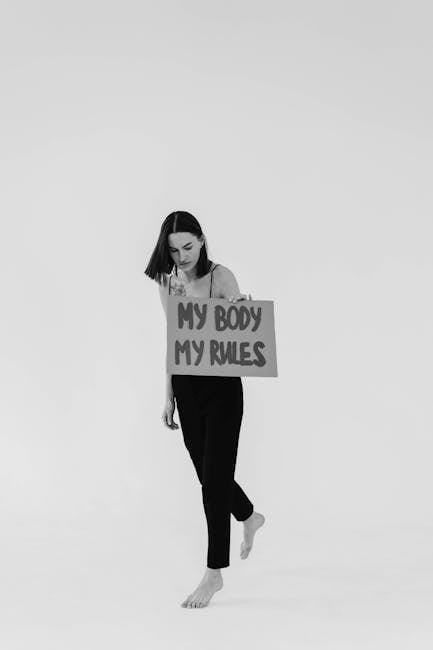
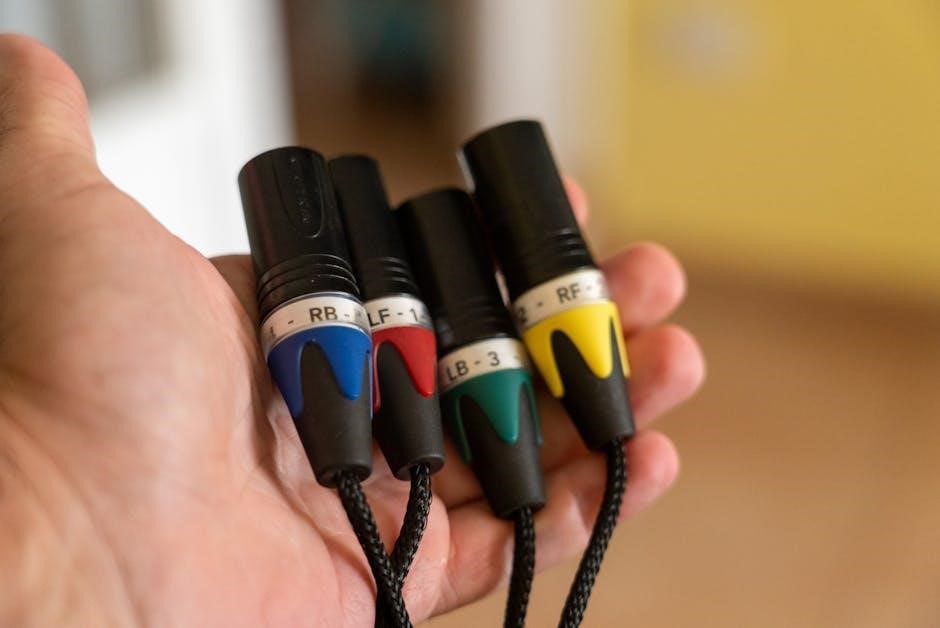

Leave a Reply
You must be logged in to post a comment.